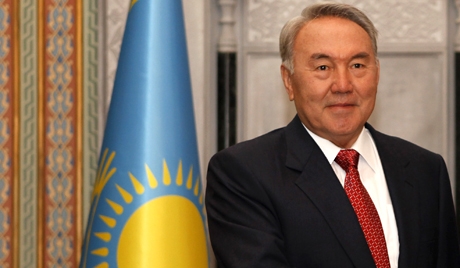 Interesting Facts about KazakhstanThe EU's keen interest in Kazakhstan's upcoming presidential elections on 26 April is due to a number of reasons – the engagement of two parties, resulting in the conclusion of the Partnership and Cooperation agreement in October 2014, is at the forefront.
Interesting Facts about KazakhstanThe EU's keen interest in Kazakhstan's upcoming presidential elections on 26 April is due to a number of reasons – the engagement of two parties, resulting in the conclusion of the Partnership and Cooperation agreement in October 2014, is at the forefront.
In spite of the predictability of the outcome, de facto the approval of the continuity of the leadership of incumbent President Nursultan Nazarbayev for a fourth term, this public ritual of re-elections is raising a wave of discussions about the future of the political developments in the society of the Central Asian richest country. What is awaiting Kazakhstan during coming years and after the end of this renewed Nazerbayev's mandate? The society is at a cross-roads...
For the overwhelming majority of Kazakhstan citizens, the achievements of Nursultan Nazarbayev's leadership are evident, and his ideas of a construction of a 'culturally attuned' democracy of its own kind sound attractive. The stability and continuity of the presidency has guaranteed the economic growth and a considerable flow of the investments from Europe in the first ranks, raising the living standards up to the level of Bulgaria – an EU member state.
In October 2014, a Partnership and Co-operation Agreement (PCA), concluded two decades of interaction between the EU and Kazakhstan, creating a solid basement for further mutually beneficial exchanges, with it becoming the first among central Asian countries to begin enhanced co-operation with the EU.
The new Enhanced Parnership and Co-operation Agreement was initiated at the end of January this year to increase the flow of trade, services and investment. It is expected to enhance exchanges in around 30 policy areas – economy and finance, energy, transport, environment and climate change, employment and social affairs, culture, education and research.
The benefits of the new agreement will include many endeavours, offering greater possibilites for business, especially for small and media enterprises and more consumer protection, creating new companies and jobs.
It is worth mentioning that the EU stood behind this initiative, proposing to substantially broaden the areas of participation, not only for the sake of mutual material benefits, but in promoting modernization and reform.
However, it is not only the EU that is offering its know-how – multi-cultural, multi-ethnical, multi-lingual Kazakhstan launches initiatives of its own, becoming an international platform of religious dialogue and tolerance.
Created by Nazarbayev's initiative, the Assembly of People of Kazakhstan was designed for strategic thinking and implementation of the unique synthetic of the muti-ethnic multi-confessional secular society. President Nazarbayev has been firmly associated with this progressive trend. By now, Kazakhstan remained the only former Soviet republic untouched by ethnic tensions.
The recent conflict in Ukraine between pro-Western Kiev and pro-Russian Donbass can not be projected on Kazakhstan, as formally it does not have any grounds to claim the EU membership: the geographically enclosed between Russia and China – it is destined to be a leading regional power in Central Asia.
However the story of Maidan represent more of a shock, than a glory to Kazakhstanies, having little sympathy for the violent scenario of opposition's ascendance to power and it's aftermath, defined by Nazarbayev as a 'fratricidal war'. Naturally inclined to peace and calm of infinite steppe the citizens are eager to preserve their harmonious life style undisturbed by the whirlwinds of the political passions.
For Kazakhstan the era of Nazarbayev is associated with multi-vectoral politics without dramatic twists of fortune: their president is equally honoured in the East and West and his personal reputation is well established. The devotion to peace and non-proliferation ensured Kazakhstanies place internationally as a model – the strategy largely associated with Nazarbayev's leadership.
However, all mentioned advantages and achievements of the incumbent president and the genuine sympathy of citizens at the fourth re-election leaves the question of the succession unanswered.
Previously promising to undertake a reform from presidential to parliamentary republic, Nazarbayev will face the biggest challenge of his leadership in the upcoming forth term to reform the political system, guaranteeing stability and prosperity as the will of the nation through the strengthening of its institutions. The much-discussed missing candidacy of the 'heir' might be filled not with a distinguished personality, which are plentiful in the nearest circle of the incumbent president, but by an institution, namely the Parliament – Mazhilis that will become the 'heir' to the presidential rule.
Whatever the transformations and reforms in the upcoming period, they will remain the legacy of Nazarbayev's era and shape the future of the people of Kazakhstan for a considerable period of time. More than a rounding of national projects improving the well-being of citizens, the political reform of the society will shape the ultimate legacy of the first president of the Republic of Kazakhstan, ensuring his place of the 'father of the nation' for generations to come.




